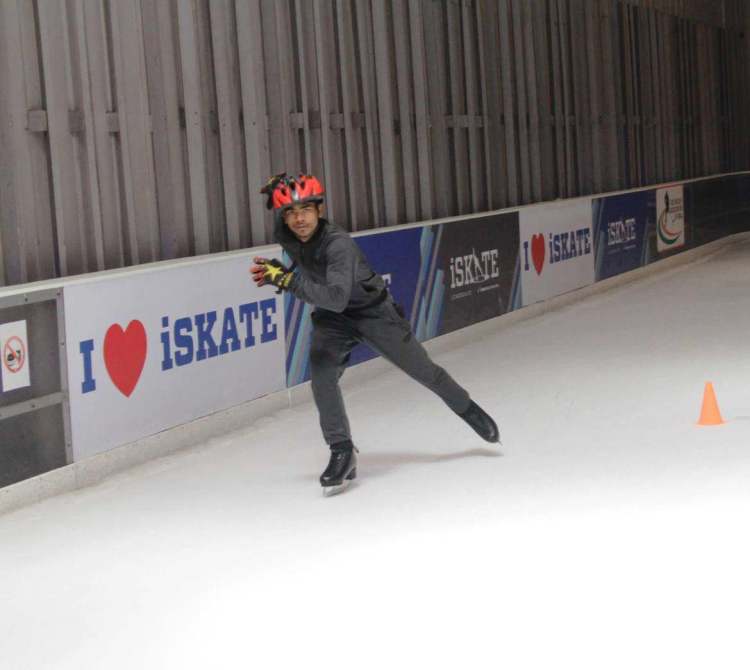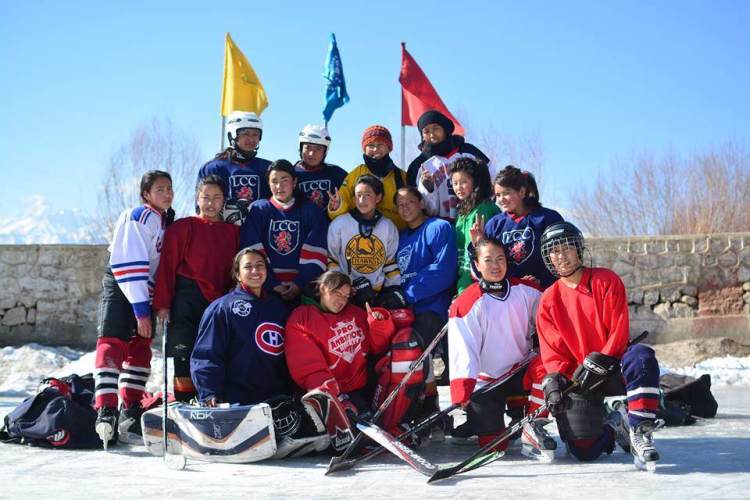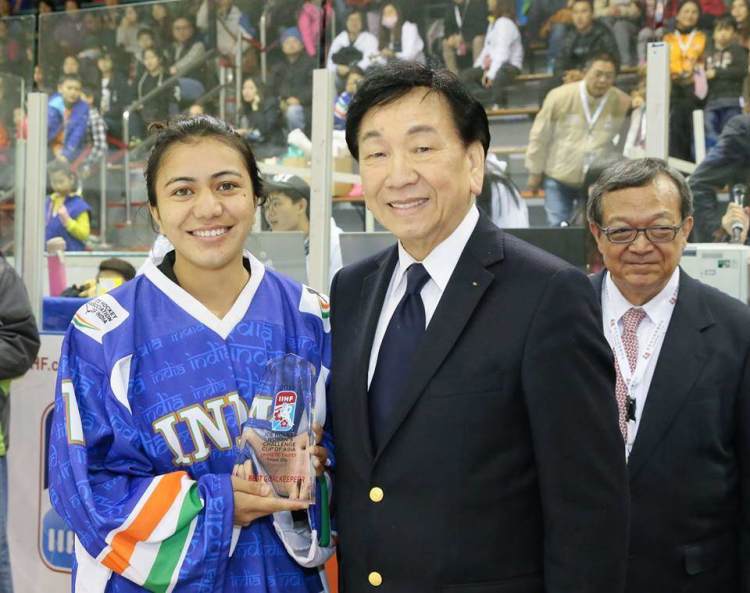P.V. Sindhu and Sakshi Malik did not feature prominently on any Indian medal-prediction lists created for Rio Olympics 2016. Their victory however, that much sweeter for the surprise, raked in the nation's adulation and unprecedented cash prizes. Their sporting careers are on track, their futures assured.
 Sakshi Malik and PV Sindhu, India's Olympics medal winners
Sakshi Malik and PV Sindhu, India's Olympics medal winners
Olympics is the arena where elite sportspeople perform feats and connect to legends across time, building a tradition. But becoming that sporting great is exorbitant and sponsorship and funding is the athlete's lifeline.
Sportspeople need to pass the acid test before they can have enough funding. Only the top stars make enough to support their training needs. Crowdfunding gives the rest a way out. Medal winners Kyle Snyder, Caleb Dressel, Ibtihaj Muhammad and Chase Kalisz – all ran successful campaigns that helped their bid at Rio. GoFundMe raised over $800,000and Indigogo $50,000 for Olympics contenders.
The 'IndianAthlete', has a long way to go. Financial worries are far from over. Till she is able to fund a highly nutritious diet, right gear and professional coaching she has to wear an entrepreneurial hat and worry about the money. She needs to make sure she has participated in the right events so she can have a shot in the big leagues.
Back to basics
In India, sportspeople are funded by the government or private sponsorship. O.P. Jaisha, India's current marathon record holder, had financial assistance from the government as well as a generous sponsorship that covered her diet, physiotherapist and training in the U.S. Financial aid did not cover her one recurring expense as a marathon runner – shoes.

A marathon runner practising for the Olympics needs to run 230 kms every week. The expensive training shoes need to be replaced at least once a month to be effective. She also had to run in cold temperatures and needed breathable clothes that would keep her warm. Small, but an important requirement for a runner.
Adithyan E.M., a freelance writer based in Kerala, who has been following Jaisha's career, decided to set up a campaign to raise funds for these essentials. The campaign successfully raised INR 4.4 lakhs as the nation came to support their national champion.
Even a gold medallist sometimes needs help
Special Olympics are for people with intellectual disabilities and not many know that the defending champion for ice-skating is India's very own Rajkumar Tiwari. The son of a street hawker in Paharganj, Delhi, he learnt ice-skating only because the people in his locality scraped together money for his coaching. After just a few months' training, he won gold in Seoul 2013 Special Olympics.
 Rajkumar who has never been able to afford using a skating rink is now training hard in Miami
Rajkumar who has never been able to afford using a skating rink is now training hard in Miami
In a few months, he was back to selling imitation jewellery on the street of Delhi. His story came to the attention of well-known Indian actor Amar Talwar, who decided to champion Rajkumar's cause. Rajkumar needed to go to the U.S. to train for the coming Tokyo Special Olympics in 2018, which needed far more than what his neighbours could collect. Amar'scampaign on Milaap raised INR 2.9 lakhs. Rajkumar got INR 13 lakhs in total through crowdfunding on various other platforms. He is at present in Miami training to fulfil his dream to win another gold for the country.
Family is important
This year was memorable in India's Olympics history because this was the year so many young, promising athletes made their debut. Dipa Karmakar, with her heroic spirit and proficiency in the dangerous Produnova was India's first gymnast to qualify for the Olympics. Another talented contender who stormed into the Olympics contingent was Avtar Singh, India's first Judo champion in the 90 kg category.
Avtar Singh, 24, was unable to circumvent local judo federation politics. He didn't participate in enough matches and his international rank was above 200. But determined to qualify for the Olympics, Avtar and his parents made a brave gamble. They encashed all their savings and mortgaged their home to send Avtar to federation events. Just six matches brought his rankings up to 79, assuring his ticket to Rio.
 Avtar Singh with his parents
Avtar Singh with his parents
Avtar wanted to share this success with his parents. His parents had never been to any of his matches before. He needed their support at this all-important one. Mother Dairy crowdfunded for Avtar and sent his parents to Rio. While Avtar lost the first round, nothing could take away his pride at representing India at the Olympics and having his parents with him.
Baby steps for other sports
In another remote a corner of the country, is a burgeoning ice-hockey practice. In the freezing winters when all the lakes are frozen, children in Ladakh take to the frozen ground, chalk out a rink and play. Early this year, the Indian women's team even qualified for the Ice Hockey Challenge Cup 2016 Asia.
 India's first women's Ice Hockey Team
India's first women's Ice Hockey Team
Money was again a problem, but SECMOL, an alternate education school in Ladakh, ran a successful campaign for the team. In a week, they achieved their target of INR 5 lakhs needed for travel and decided to raise more for other expenses. In all they raised INR 7 lakhs and successfully sent the whole team for the tournament.
The team played only four matches, but every international goal they scored added to their confidence as a team. Noor Jahan, the Indian Goaltender was recognised as the best in Asia and the Indian team returned hopeful for the next time.
 Noor Jahan at the Ice Hockey Challenge Cup 2016
Noor Jahan at the Ice Hockey Challenge Cup 2016
These are girls whose families frowned upon all the practise sessions that kept them out at odd hours in the winter. Travel expenses were just another reason they should stop this nonsense, they said. But with their performance in the Asia cup, the team has now started to think of ways to take their game to the next level. Practice has become serious like never before.
A mirror to the future
Crowdfunding has opened up the possibility for any one to become directly involved in the country's sports development. Not only as a backer, but also as a champion for the sportsperson, who more often than not, has limited online presence.
 Sakshi Malik and PV Sindhu, India's Olympics medal winners
Sakshi Malik and PV Sindhu, India's Olympics medal winnersOlympics is the arena where elite sportspeople perform feats and connect to legends across time, building a tradition. But becoming that sporting great is exorbitant and sponsorship and funding is the athlete's lifeline.
Sportspeople need to pass the acid test before they can have enough funding. Only the top stars make enough to support their training needs. Crowdfunding gives the rest a way out. Medal winners Kyle Snyder, Caleb Dressel, Ibtihaj Muhammad and Chase Kalisz – all ran successful campaigns that helped their bid at Rio. GoFundMe raised over $800,000and Indigogo $50,000 for Olympics contenders.
The 'IndianAthlete', has a long way to go. Financial worries are far from over. Till she is able to fund a highly nutritious diet, right gear and professional coaching she has to wear an entrepreneurial hat and worry about the money. She needs to make sure she has participated in the right events so she can have a shot in the big leagues.
Back to basics
In India, sportspeople are funded by the government or private sponsorship. O.P. Jaisha, India's current marathon record holder, had financial assistance from the government as well as a generous sponsorship that covered her diet, physiotherapist and training in the U.S. Financial aid did not cover her one recurring expense as a marathon runner – shoes.

A marathon runner practising for the Olympics needs to run 230 kms every week. The expensive training shoes need to be replaced at least once a month to be effective. She also had to run in cold temperatures and needed breathable clothes that would keep her warm. Small, but an important requirement for a runner.
Adithyan E.M., a freelance writer based in Kerala, who has been following Jaisha's career, decided to set up a campaign to raise funds for these essentials. The campaign successfully raised INR 4.4 lakhs as the nation came to support their national champion.
Even a gold medallist sometimes needs help
Special Olympics are for people with intellectual disabilities and not many know that the defending champion for ice-skating is India's very own Rajkumar Tiwari. The son of a street hawker in Paharganj, Delhi, he learnt ice-skating only because the people in his locality scraped together money for his coaching. After just a few months' training, he won gold in Seoul 2013 Special Olympics.
 Rajkumar who has never been able to afford using a skating rink is now training hard in Miami
Rajkumar who has never been able to afford using a skating rink is now training hard in MiamiIn a few months, he was back to selling imitation jewellery on the street of Delhi. His story came to the attention of well-known Indian actor Amar Talwar, who decided to champion Rajkumar's cause. Rajkumar needed to go to the U.S. to train for the coming Tokyo Special Olympics in 2018, which needed far more than what his neighbours could collect. Amar'scampaign on Milaap raised INR 2.9 lakhs. Rajkumar got INR 13 lakhs in total through crowdfunding on various other platforms. He is at present in Miami training to fulfil his dream to win another gold for the country.
Family is important
This year was memorable in India's Olympics history because this was the year so many young, promising athletes made their debut. Dipa Karmakar, with her heroic spirit and proficiency in the dangerous Produnova was India's first gymnast to qualify for the Olympics. Another talented contender who stormed into the Olympics contingent was Avtar Singh, India's first Judo champion in the 90 kg category.
Avtar Singh, 24, was unable to circumvent local judo federation politics. He didn't participate in enough matches and his international rank was above 200. But determined to qualify for the Olympics, Avtar and his parents made a brave gamble. They encashed all their savings and mortgaged their home to send Avtar to federation events. Just six matches brought his rankings up to 79, assuring his ticket to Rio.
 Avtar Singh with his parents
Avtar Singh with his parentsAvtar wanted to share this success with his parents. His parents had never been to any of his matches before. He needed their support at this all-important one. Mother Dairy crowdfunded for Avtar and sent his parents to Rio. While Avtar lost the first round, nothing could take away his pride at representing India at the Olympics and having his parents with him.
Baby steps for other sports
In another remote a corner of the country, is a burgeoning ice-hockey practice. In the freezing winters when all the lakes are frozen, children in Ladakh take to the frozen ground, chalk out a rink and play. Early this year, the Indian women's team even qualified for the Ice Hockey Challenge Cup 2016 Asia.
 India's first women's Ice Hockey Team
India's first women's Ice Hockey TeamMoney was again a problem, but SECMOL, an alternate education school in Ladakh, ran a successful campaign for the team. In a week, they achieved their target of INR 5 lakhs needed for travel and decided to raise more for other expenses. In all they raised INR 7 lakhs and successfully sent the whole team for the tournament.
The team played only four matches, but every international goal they scored added to their confidence as a team. Noor Jahan, the Indian Goaltender was recognised as the best in Asia and the Indian team returned hopeful for the next time.
 Noor Jahan at the Ice Hockey Challenge Cup 2016
Noor Jahan at the Ice Hockey Challenge Cup 2016These are girls whose families frowned upon all the practise sessions that kept them out at odd hours in the winter. Travel expenses were just another reason they should stop this nonsense, they said. But with their performance in the Asia cup, the team has now started to think of ways to take their game to the next level. Practice has become serious like never before.
A mirror to the future
Crowdfunding has opened up the possibility for any one to become directly involved in the country's sports development. Not only as a backer, but also as a champion for the sportsperson, who more often than not, has limited online presence.









